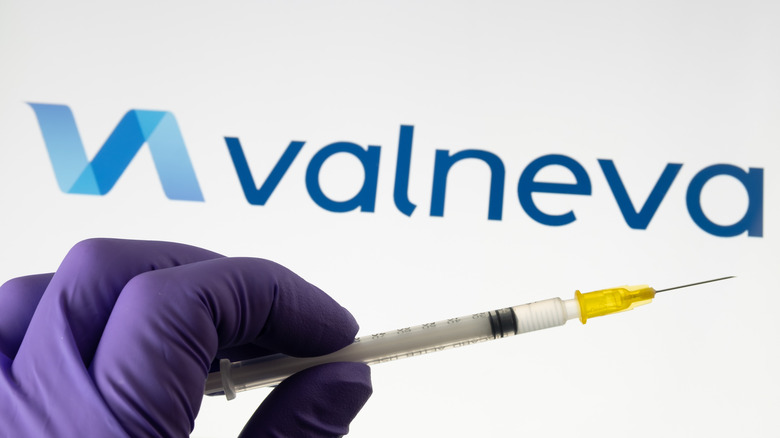Valneva: Everything We Know About The New COVID-19 Vaccine
According to the Centers for Disease Control and Prevention (CDC), the COVID-19 vaccine provides a safe way to deliver antibodies that protect against the worst coronavirus outcomes. There have been around 574 million doses of the COVID-19 vaccine administered in the United States as of this writing (via Bloomberg).
The COVID-19 vaccine can lower the risk of getting the virus, spreading the virus, hospital visits, and can prevent serious illness and death in all populations (via the CDC). There are five COVID-19 vaccines available for administration across the globe, including: Pfizer, Moderna, Oxford-AstraZeneca, Johnson & Johnson (Janssen), and Novavax (per MedicalNewsToday).
Now, a new vaccine called the Valneva (VLA2001) has been developed, according to MedicalNewsToday. Valneva was given emergency use authorization in Bahrain in March 2022. Currently, Valneva is undergoing regulatory approval by the U.K. Medicines Regulatory and Healthcare Products Regulatory Agency (MHRA).
How does Valneva work?
Valneva uses an inactivated SARS-CoV-2 virus. This is similar to the kinds of well-known vaccines for preventing influenza and polio. Exposure to the inactivated virus causes the body to have an immune reaction, but the virus can't replicate and cause illness. A three-phase trial has been completed that revealed the new vaccine is as effective as the other vaccines. Participants in the study experienced mild side effects from the vaccine such as headaches, fatigue, and soreness at the site of injection (via Medical News Today).
According Medical News Today, Eleanor Riley, professor of immunology and infectious disease at the University of Edinburgh said, "One particular advantage of the Valneva vaccine is that it is made up of the whole SARS-CoV-2 virus, not just the spike protein. This means that it will induce antibodies and T cell cells against many different components of the virus, including components that are much less susceptible to variation than the spike protein." Thus, the hope is that this vaccine can provide better protection against new variants, something the majority of health experts believe is critical for our health and wellbeing.


